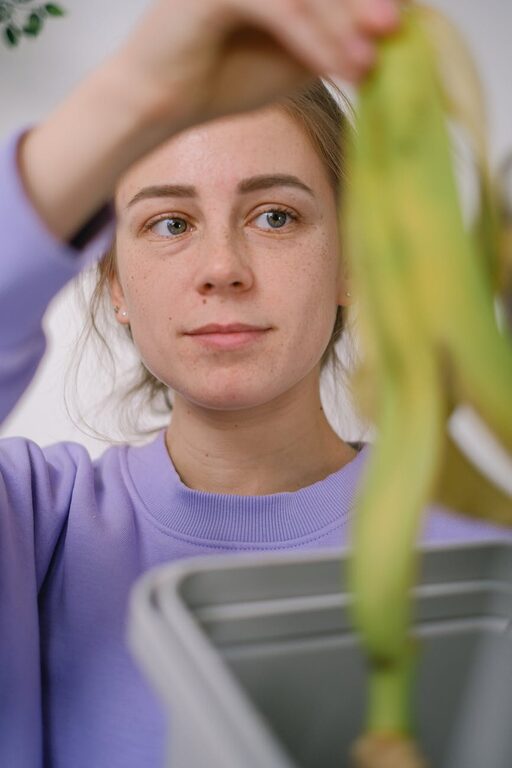
Composting at home is a fantastic way to reduce waste, enrich your garden soil, and contribute positively to the environment. If you’re new to composting, it might seem a bit overwhelming at first, but with a few easy tips, you can start turning your kitchen scraps and yard waste into valuable compost in no time. In this post, we’ll guide you through the basics so you can begin composting confidently and effectively.
What is Composting?
Composting is the natural process of recycling organic matter, such as food scraps and yard waste, into a rich soil amendment known as compost. This nutrient-rich material helps improve soil health, supports plant growth, and reduces the need for chemical fertilizers.
Why Compost at Home?
– Reduce Household Waste: Composting diverts food scraps and yard debris from the landfill.
– Enhance Garden Health: Compost enriches the soil with nutrients and improves its structure.
– Save Money: Less need for buying commercial fertilizers and soil conditioners.
– Support the Environment: Composting reduces methane emissions from landfills and promotes sustainable gardening.
Getting Started: Beginner Tips for Composting at Home
Choose the Right Compost Bin or Pile
You can compost with a simple pile in your yard or use a bin designed for composting. Consider these options:
– Open pile: Easy to start but may attract pests and is less tidy.
– Compost bin: Contains waste neatly, speeds up decomposition, and keeps pests away.
– Tumbler: A sealed container that you can rotate, helping aerate the compost for faster breakdown.
Pick a container or location that suits your space and lifestyle.
Select a Good Spot
Place your compost bin or pile in a convenient spot that is:
– Well-drained and partially shaded.
– Easily accessible for adding scraps and turning.
– Away from your house entrances to avoid odors.
Know What to Compost
Composting works best when you balance “greens” and “browns”:
– Greens: Nitrogen-rich items like fruit and vegetable scraps, coffee grounds, grass clippings, and fresh garden waste.
– Browns: Carbon-rich materials such as dry leaves, straw, shredded newspaper, cardboard, and small branches.
Aim for about 2-3 parts browns to 1 part greens in your compost to keep it balanced and odor-free.
Avoid Composting These Items
Certain items should stay out of your compost:
– Meat, dairy, fats, and oily foods (these attract pests).
– Diseased plants or weeds with seeds (may spread problems).
– Pet waste from carnivores.
– Treated wood or synthetic materials.
Chop or Shred Larger Pieces
To speed decomposition, cut or shred food scraps and leaves into smaller pieces before adding them to your compost.
Maintain Moisture Levels
Compost should be about as moist as a damp sponge—not soaking wet or bone dry. If it’s dry, sprinkle water occasionally. If too wet, add more browns and turn the pile.
Aerate Regularly
Oxygen is essential for the microbes that break down your compost. Turn your pile or mix your bin every 1-2 weeks to keep air moving and speed up the decomposition process.
Patience is Key
Composting takes time—generally a few months to a year depending on conditions. Finished compost looks dark, crumbly, and smells earthy.
Using Your Finished Compost
Once your compost is ready:
– Mix it into garden beds to improve soil fertility and texture.
– Use it as mulch around plants to retain moisture.
– Incorporate it into potted plants for added nutrients.
Troubleshooting Common Problems
– Bad odors: Usually caused by too many greens or moisture; add more browns and turn the pile.
– Pests: Avoid meat and oily foods and secure your bin.
– Slow decomposition: Chop materials finely, balance greens and browns, and turn more frequently.
– Dry pile: Add water and mix well.
Bonus Tips for Success
– Start small to build your confidence.
– Keep a small kitchen compost bin handy for scraps.
– Learn about local composting programs if you want to compost items your home pile can’t.
– Experiment and adjust based on your experience.
Final Thoughts
Home composting is a rewarding practice with benefits for your garden, your wallet, and the planet. By following these beginner tips, you can create a manageable and efficient compost system that fits your lifestyle. Give it a try—you may soon discover composting to be a satisfying and eco-friendly part of your daily routine!
Happy composting!
